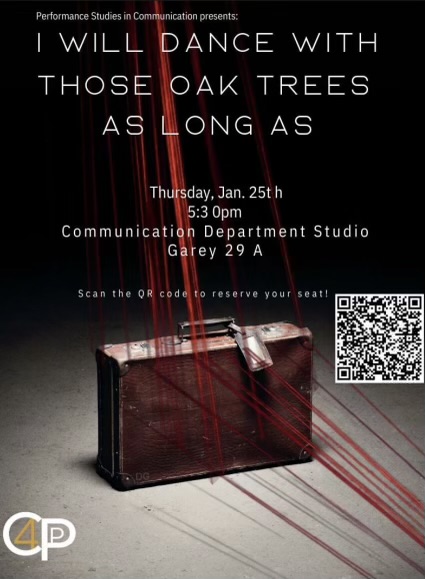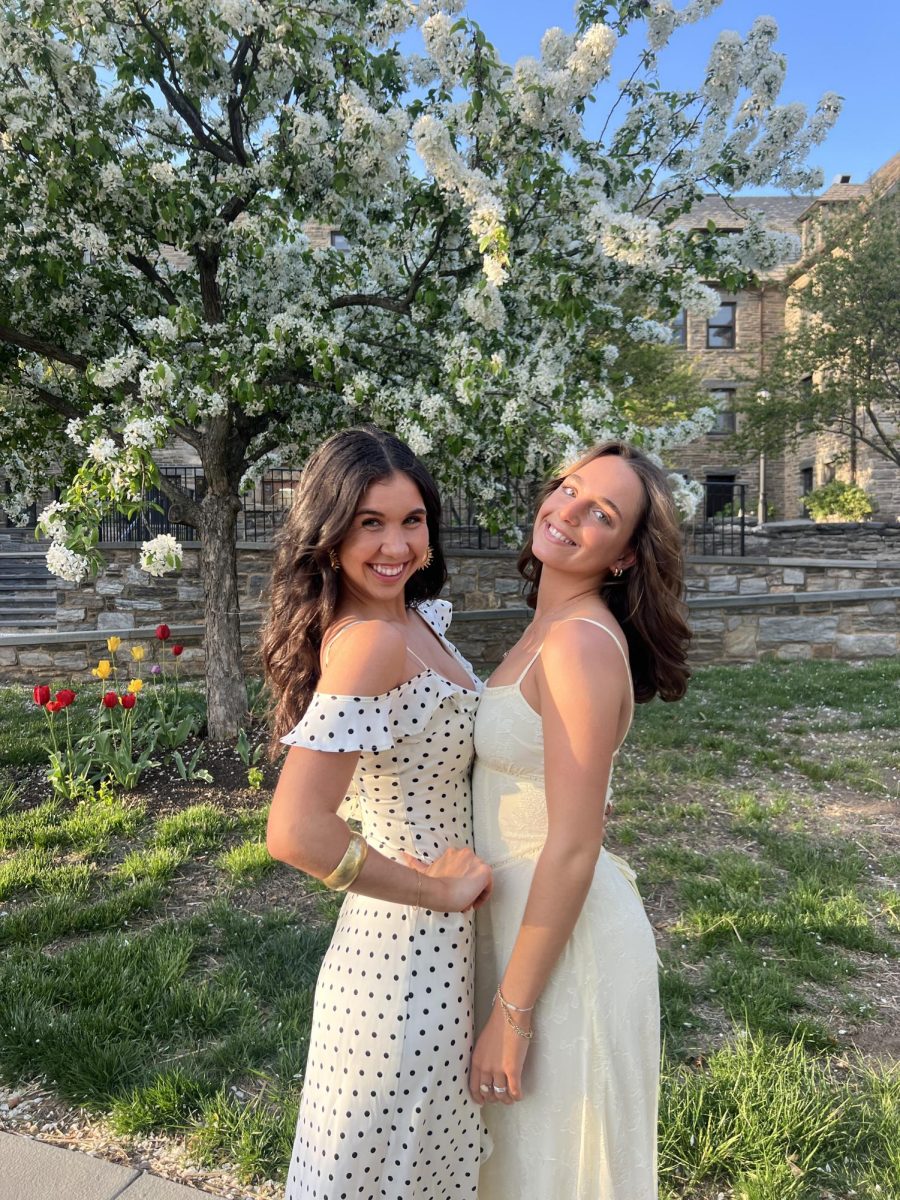Last Thursday, Jan. 25, inside Garey Hall’s Communication Department Studio, fortunate Villanovans served as an audience to the play “I will dance with those oak trees as long as.” This play was performed by the humanitarian troupe Create Poetry 4 Peace (CP4P) International Productions. Sharing their knowledge globally through poetry and theater workshops, CP4P develops plays inspired by the stories of cultures devastated by political conflict or ecological disaster. Dr. Heidi M. Rose, from Villanova’s Communication Department, who arranged the performance comments on its overarching themes.
“They had toured a piece about the war in Ukraine last year, and when a friend of mine who teaches at Monmouth University recommended their work, I welcomed the opportunity to learn about their current touring project,” Dr. Rose said. “Our performance studies courses and productions often address topics of social justice, antiracism and intersectional identities, and I was especially excited to work with an international team of artists.”
The play centers on Gilgamesh, Enkidu and Ninsun — three Kurdish women working at a carpet store Halabja, Iraq and fighting to survive in a city marred by the oppressive brutality of soldiers on the populace. The play combines information taken from interviews with Kurdish people and the unforgettable story of Gilgamesh and Enkidu from Gilgamesh’s eponymous epic. What follows is a touching story about death and mortality yet also friends, family and heroism.
“Further, the artists, Audrey Rose Dégez and Daria Holovchanska, devise their work using objects, physicality, puppets and masks, a highly theatrical and non-textual approach which I was excited to share with our students,” Dr. Rose said, describing the play’s minimalistic constitution compared to one’s average theatrical feature. Mrs. Dégez and Ms. Holovchanska combine their singing and acting talents with red string, a black shawl, clay puppets, a suitcase and a truckload of carpets to depict the simple tale.
According to the actors, each object was scrupulously selected with the potential for symbolism constantly in mind. For example, the red string represents bloodshed and life force, but also the passion and love that enable us to form deep relationships with others. The black shawl is cleverly used by Ms. Holovchanska to seamlessly transition from playing Enkidu to Ninsun as quickly as a finger snap.
Accompanying the performance were eerie and sinister, yet captivating bouts of Kurdish music mixed with Gilgamesh’s movements, ranging from frightened and enraged to majestic or playful. Any audience member could recall anxiously sitting on the edge of their seat when masked, demonic figures representing soldiers broke into the carpet store at night and vandalized the premises to the shrill sound of their laughter. And how could anyone in the audience forget about that moment when Gilgamesh was so consumed by despair and rage that she resembled the same demonic, mischievous souls oppressing her, mask and all?
“I hope the poetic and personal approach of the performance motivates audiences to learn more about the Kurdish genocide that occurred under Saddam Hussein’s regime in Iraq and the ongoing oppression under Erdogan’s regime in Turkey, and I also hope Audrey and Daria inspire our students to explore their own creativity in performance,” said Dr. Rose.
Exactly as Dr. Rose implied, the Kurdish people — primarily located in the Middle Eastern region of Kurdistan — have been victims of overwhelming subjugation for at least nine decades. “I will dance with oak trees as long as” occurs prior to the Halabja massacre, a chemical weapons attack in 1988 that resulted in approximately 10,200 to 15,000 casualties — over 3,000 deaths and 7,000 injured victims.
Compounding the need to fight for Kurdish independence, Kurdish people have had their rights restricted under Turkey’s governing regime. Many Kurdish people have been denied equal distribution of relief from international allies after numerous natural disasters crashed through the region in early 2023.
Following the production, Ms. Holovchanska asked the audience to consider what a hero truly is. What would be the right thing for a hero to do when struck with a situation of repression?
“To fight? To run? To be silent?” asked Ms. Holovchanska. Can one college student strive to be a hero to not just the Kurdish people, but any person having his or her rights restricted?
For more information about CP4P, and to get the news on future productions, one may feel free to visit their Instagram at @cp4p_international or check out their website at https://www.cp4p-international.org. More information about Villanova’s communication department can be found at https://www1.villanova.edu/university/liberal-arts-sciences/programs/communication.html.







